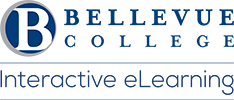Date posted: April 15, 2016

Two day webinar On April 27-28, 2016 from 9:00 a.m. – 12:30 p.m. PT, you are invited to join members of the eLearning Council community to attend, “Exploring the Next-Generation Digital Learning Environment: Opportunities and Challenges,” a two-day, online focus session, organized by the EDUCAUSE Learning Initiative (ELI) (http://www.educause.edu/eli). Join your campus colleagues for an important ...more about Exploring the Next-Generation Digital Learning Environment
Date posted: December 22, 2015
What is Quality Matters? Quality Matters (QM) is a non-profit organization which is dedicated to improving the quality of online course design. Though QM has established a multi-faceted process for assuring the quality of online courses, the best place to begin is with the QM Rubric. Based upon research-supported and published best practices for online ...more about BC Faculty Call Quality Matters® Training “Transformative”
Date posted: November 6, 2015
Though the flipped classroom model has amazing potential for helping students to achieve higher-order learning outcomes, flipping a course has its own special challenges. The successful flipped classroom goes beyond simply posting lectures, reading materials and videos online for students to view. Guided practice provides students with the support they need to remember and understand new content, so they come to class ready to apply, analyze and create with new course concepts. Dr. Robert Talbert, Associate Professor of Mathematics at Grand Valley State University in Allendale, Michigan, has written a very helpful post which details the way he designs and implements guided practice in his flipped math classes.
Date posted: July 21, 2015
A fascinating new article from the Center for Teaching Excellence (CTE) at Rice University opines that the idea of the Growth Mindset is not complete without the company of Vygotsky’s Zone of Proximal Development.

